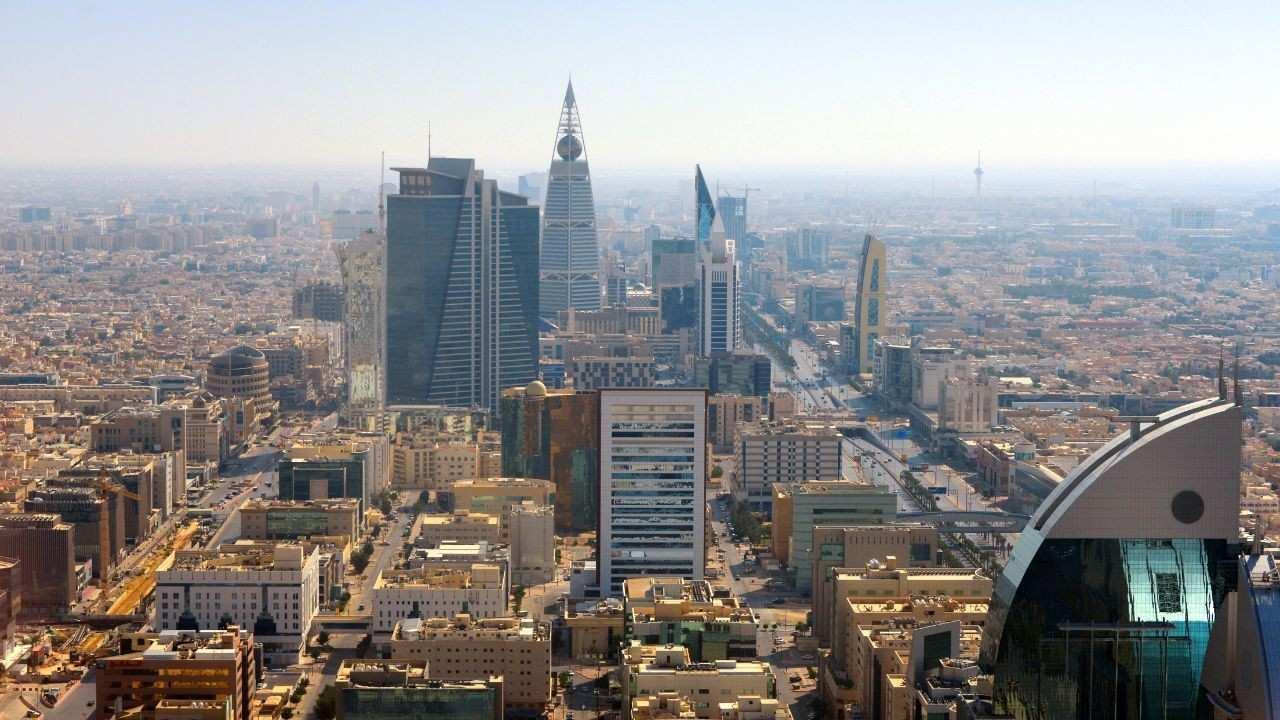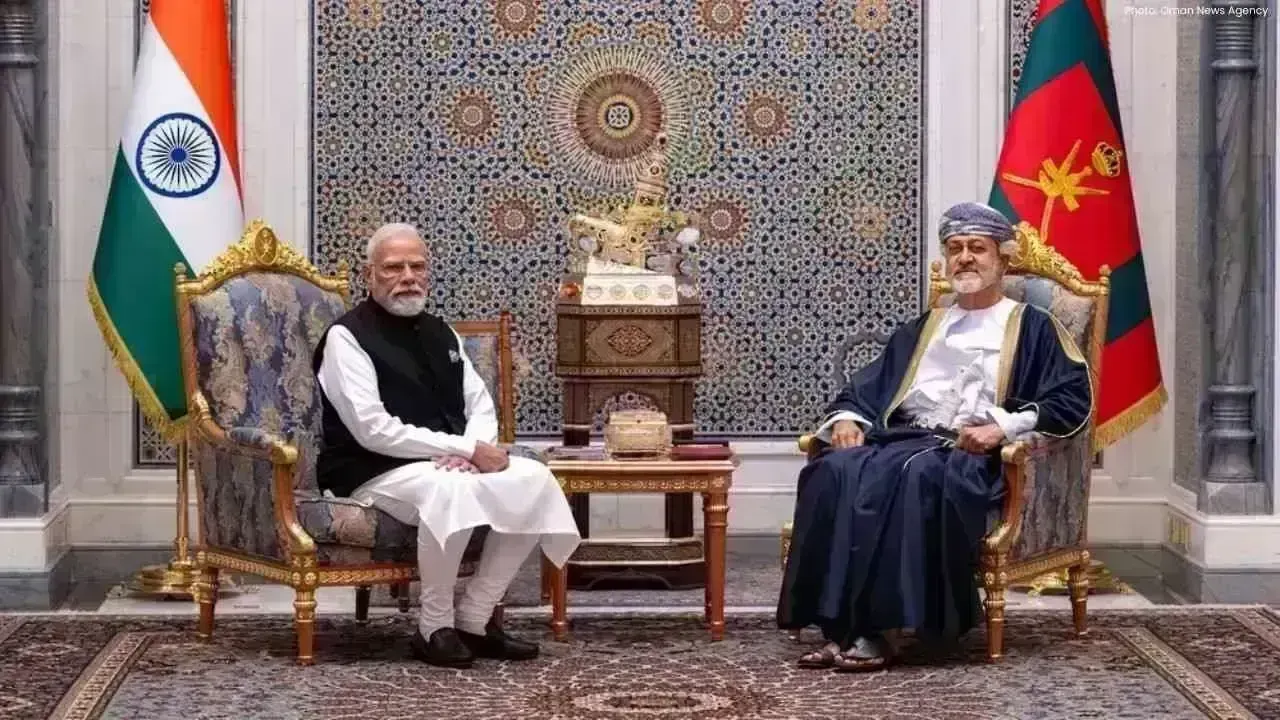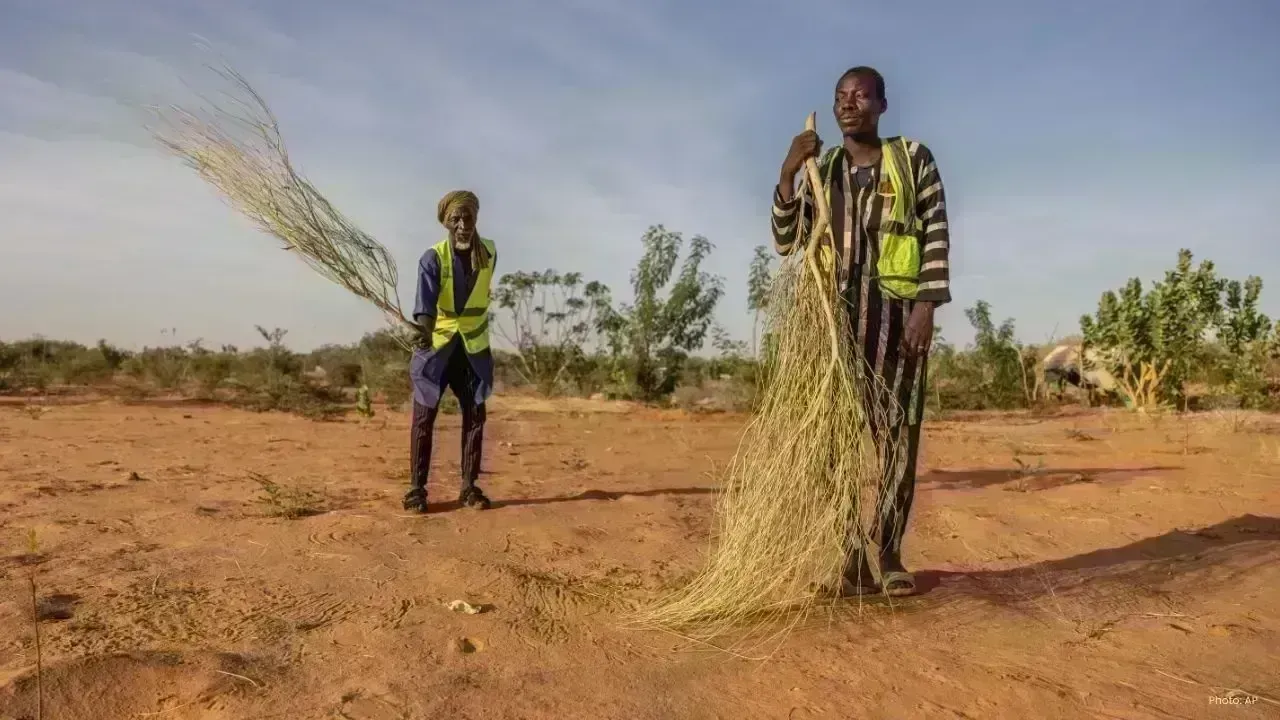
Post by : Mariam Al-Faris
Saudi Arabia has set bold goals to reshape its transport and logistics sector. The Kingdom plans to double this sector’s contribution to GDP, reflecting its determination to become a leading global logistics hub. This initiative also includes expanding the national railway network by over 50% and more than doubling airport passenger capacity. Such wide-ranging upgrades are part of a carefully planned campaign to strengthen economic infrastructure and modernize the nation’s connectivity.
Minister’s Declaration at Global Summit
During the Global Aviation and Maritime Transport Summit, the Minister of Transport and Logistics Services, Eng. Saleh Al‑Jasser, shared these ambitious targets. In a ministerial session titled “Shaping the Future of Transport: People, Technology, and Policy,” he highlighted that Saudi Arabia's strategy hinges on three pillars: people, advanced technology, and modern policies. His remarks emphasized a long-term vision backed by purpose and structural reforms.
Integrating People, Policy, and Technology
According to Al‑Jasser, the Kingdom is steadily building an integrated transport ecosystem. This system places people—commuters, travelers, and logistics workers—at its center. It will be supported by new laws and regulations and powered by technology at every level, from ticketing systems and cargo entry to tracking shipments. The core message: modern infrastructure alone is not enough without a supportive legal framework and a mindset focused on human-centric development.
Creating Logistics Zones Nationwide
One of the key steps in realizing this vision involves developing logistics zones across the country. These are designated regions that serve as hubs for cargo storage, transfers, and customs processing. By co-locating warehouses, customs checkpoints, and transport terminals, these zones aim to reduce friction in supply chains. This effort will also enhance coverage in both urban centers and rural areas, ensuring that no part of Saudi Arabia remains disconnected from global trade routes.
Jeddah Integrated Zone: A Case Study
The Jeddah Islamic Port will soon house a fully integrated logistics zone. Here, the main seaport, customs warehouses, and air cargo terminals will operate in seamless coordination. This initiative is a major leap forward for reducing redundant processes and speeding up cargo handling times. It represents the Kingdom’s commitment to elevate one of its most essential ports to an international-grade logistics hub.
Railway Link to Airport: The Land Bridge Project
To further improve connectivity, the integrated zone at Jeddah will be directly connected by rail to King Abdulaziz International Airport. This land bridge will streamline the transfer of goods between sea and air, eliminating road transport bottlenecks and reducing costs. It is a shining example of “multimodal integration,” a concept crucial to building an ecosystem where different transport methods complement each other.
Digital Backbone Streamlining Cargo Clearances
Saudi Arabia has also deployed a unified national digital logistics platform. This system links customs, ports, airlines, and freight forwarders with centralized digital tools. Since its launch in mid-2021, it has cut customs clearance times by over 30%—a dramatic gain that enables faster cargo movement and supports export-driven growth. This digital layer serves as a vital link between ground infrastructure and global logistics networks.
Vision 2030: The Driving Force
All these initiatives fall under the umbrella of Saudi Vision 2030, which includes the National Transport and Logistics Strategy launched in 2021. The strategy seeks to unify Saudi Arabia’s multimodal transport systems and position the nation as a global logistics hub. The expansion of railways, airports, digital platforms, and logistics zones are essential parts of this broader mission to diversify the economy and integrate into the global supply chain.
Resilience: The New Strategic Priority
Al‑Jasser emphasized that resilience is now a key criterion—not just an aspiration. In an unpredictable global landscape, Saudi Arabia understands that a resilient transport and logistics system is vital for sustained growth. The planned integration of infrastructure, policy, and technology is the Kingdom’s strategy to address shocks in global trade, climate challenges, and market disturbances.
The Role of International Collaboration
To achieve such ambitious targets, Saudi Arabia is also enhancing international cooperation. Infrastructure and logistics are global sectors that benefit from partnerships in construction, technology, and regulatory alignment. These alliances could involve collaboration with port operators, railway technology firms, or regulatory bodies. A globally connected logistics framework requires global collaboration.
The Impact on Business and Economy
The ripple effect of these plans will touch many sectors. Industries like manufacturing, import-export, retail, and e-commerce stand to benefit directly from faster and more reliable transport systems. Improved logistics can reduce costs, increase competitiveness, and encourage foreign investment. Most importantly, they support job creation and skill development in logistics, engineering, and technology.
Putting Passengers First
Doubling airport passenger capacity shows that Saudi Arabia's strategy extends beyond cargo. Airports are gateways for tourism, business, and cultural exchange. Upgrading airport infrastructure aligns with national efforts to develop tourism, business travel, and cultural diplomacy—supporting Vision 2030’s broader goal of economic diversification.
Environmental and Urban Considerations
Rail expansion plays another important role: environmental sustainability. Self-powered trains are more eco-friendly than long-haul trucks, reducing carbon emissions while easing highway congestion. The streamlined logistics zones also help reduce urban traffic and pollution by processing cargo in designated areas rather than within city limits.
Protecting National Security Through Logistics
An efficient transport network strengthens national security. It allows faster deployment of resources during emergencies and supports humanitarian and defense logistics. A streamlined supply chain is also essential for pandemic response and disaster preparedness.
Timeline and Critical Milestones
Saudi Arabia has set measurable milestones. With a half-century rail expansion, doubled airport capacity, nationwide logistics zones, and a resilient digital backbone, the Kingdom has embarked on one of its most ambitious infrastructure drives. Ministries and private partners are collaborating to deliver these improvements over the next decade.
Challenges and Risks Ahead
Such an ambitious plan faces challenges: scaling infrastructure, real estate costs for logistics zones, funding, regulatory compliance, and ensuring cohesion across ministries. However, with strong leadership and Vision 2030’s framework, Saudi Arabia appears committed to turning challenges into opportunities.
Future-Ready Workforce
These changes will demand a skilled workforce. Engineers, data analysts, AI experts, logisticians, and technicians will be in high demand. The digital platform will rely on data analytics and cybersecurity professionals. Education and training programs must be aligned with sector needs—a key part of Vision 2030’s talent development goals.
Citizen-Centric Values at Heart
Despite its large scale, the focus remains on people. Better transport means less commute time, fewer delays, safer travel, more reliable cargo delivery for businesses, and stronger links between cities and rural areas. Improved connectivity boosts quality of life and social mobility, grounding Vision 2030’s promise of shared prosperity for all citizens.
Global Best Practices Being Adopted
Much of this framework mirrors world-class logistics centers like Singapore, Rotterdam, and Dubai. Saudi Arabia is studying these models—from port efficiency to digital governance—to craft its own version tailored to regional geography, legal systems, and economic goals. The goal is global excellence built on local knowledge.
Long-Term Economic and Global Influence
By completing these projects, Saudi Arabia will enhance its role in global trade. Efficient logistics can make it a hub for shipments between Asia, Europe, and Africa. This aligns with its goal to leverage geographic advantage, supported by new ports, airports, rail lines, and strong digital infrastructure.
A Unified Vision in Motion
Saudi Arabia’s plans mark a turning point for the Kingdom’s economy and global role. Transport, logistics, and resilience are no longer sectors—they are agents of national transformation. With a clear strategy based on people, technology, and policy under Vision 2030, Saudi Arabia is not simply building infrastructure—it’s creating a powerhouse designed for long-term growth, connectivity, and global engagement.










Globe Soccer Awards 2025 Finalists Include PSG and Cristiano Ronaldo
GLOBE SOCCER Awards 2025 finalists are out after 30 million fan votes, with PSG stars, top clubs and

Google Gemini Web App Adds Opal Tool for Building Mini AI Apps
Google adds Opal to Gemini web app, letting users make mini apps called Gems using simple prompts wi

Shraddha Kapoor Praises Crew Behind Dhurandhar Film Success
Shraddha Kapoor praises the unseen technicians of Dhurandhar, lauds director Aditya Dhar, and calls

Truecaller Launches Free AI Voicemail with Spam Protection for Android
Truecaller launches free AI voicemail for Android in India with instant transcription, spam protecti

FIFA Confirms First Women’s Club World Cup Scheduled for 2028
FIFA announces the first Women’s Club World Cup in January 2028 with 16 teams, group stages, and glo

Buck Rogers Star Gil Gerard Dies at 82 After Cancer Battle
Gil Gerard, famous for playing Buck Rogers, has died at 82 after cancer. He was known for his sci-fi